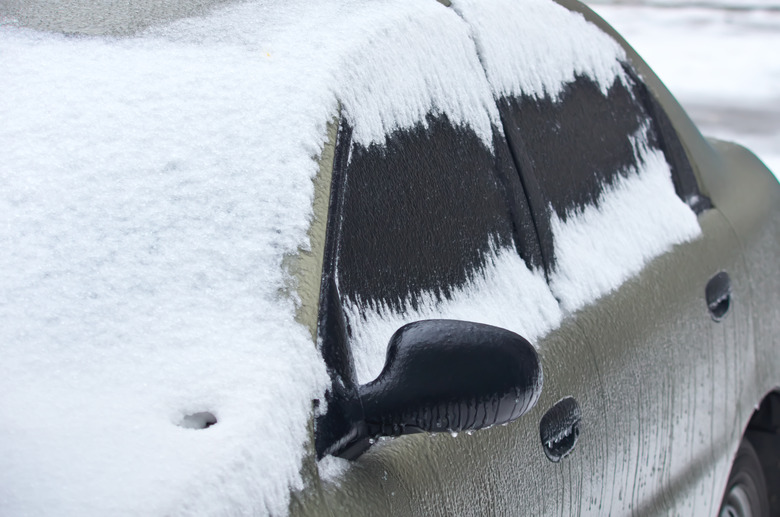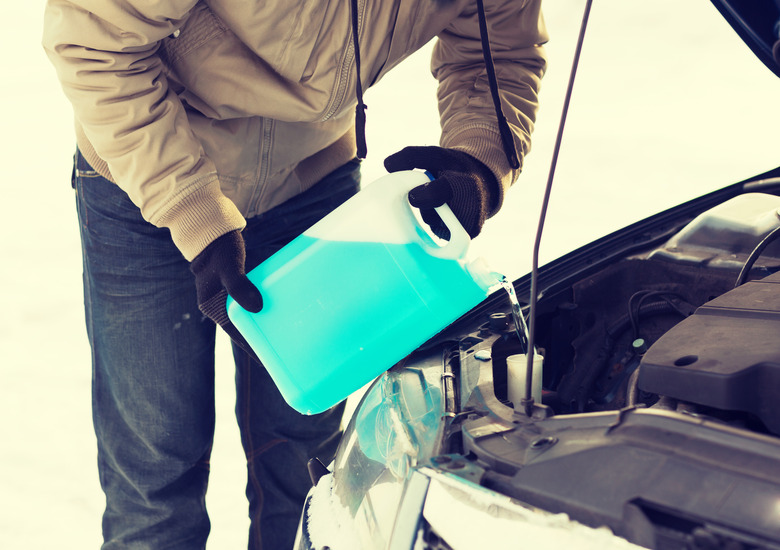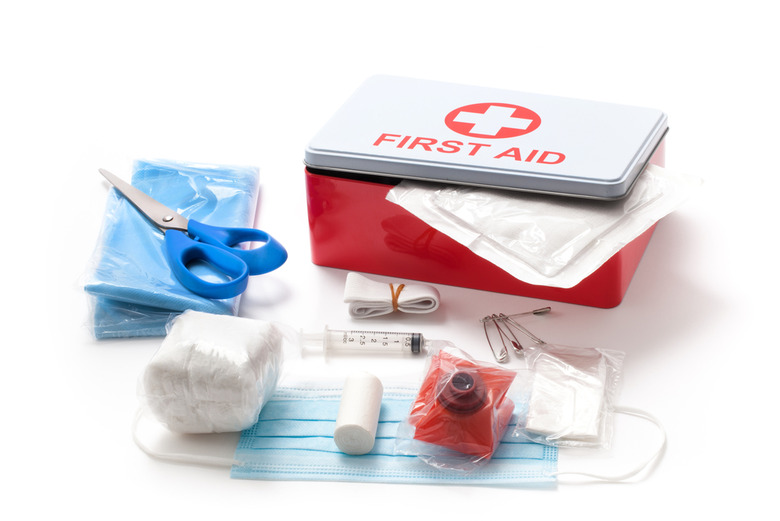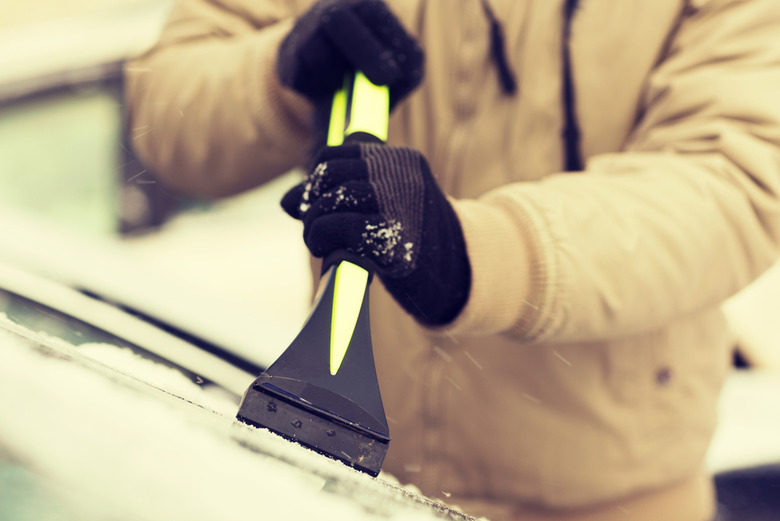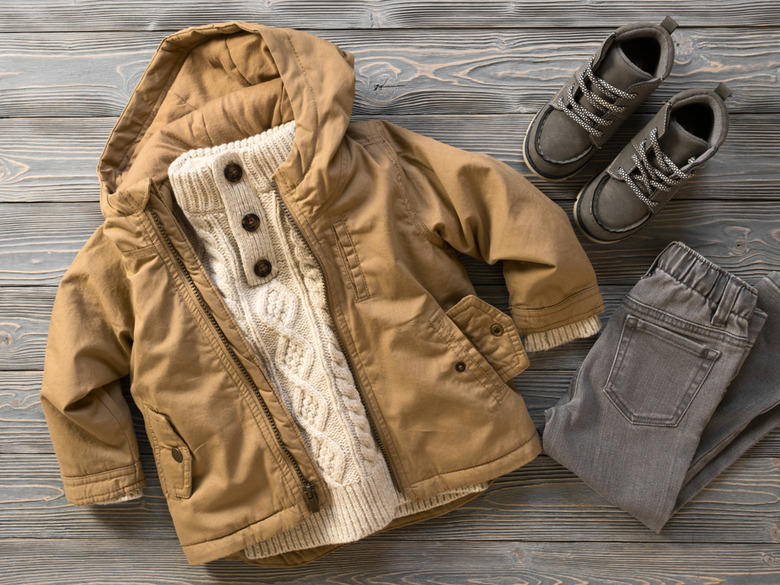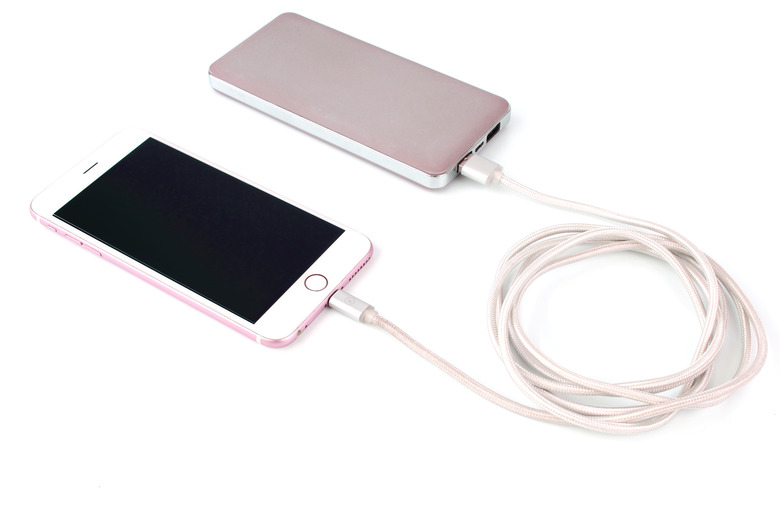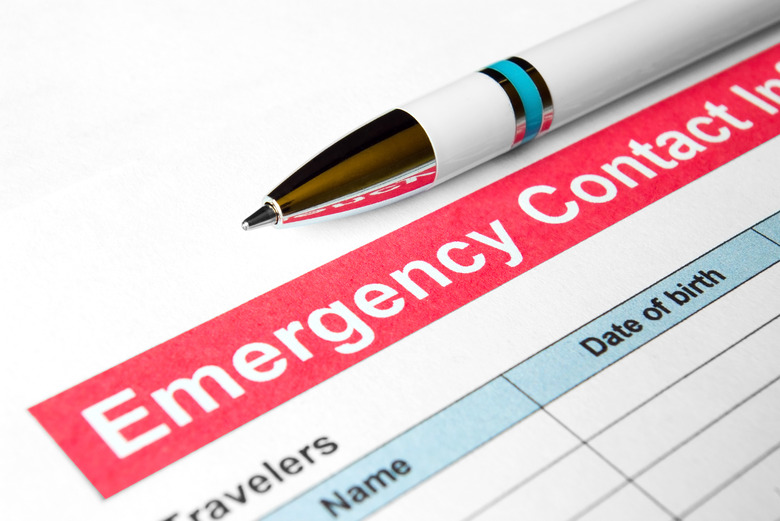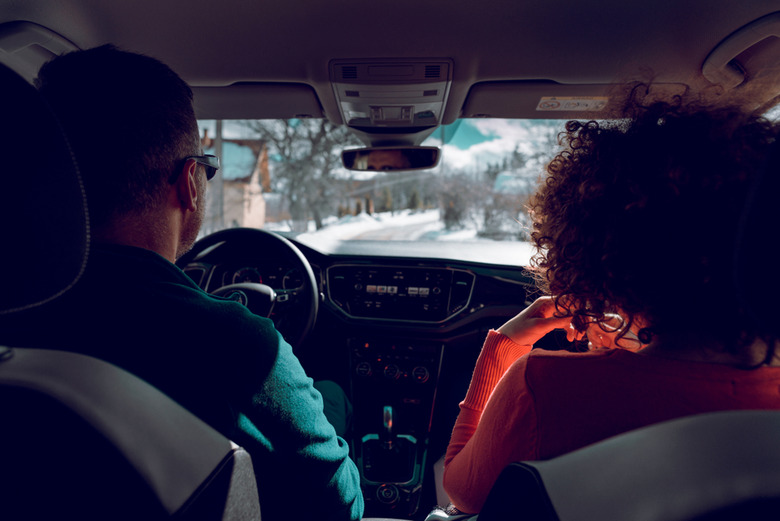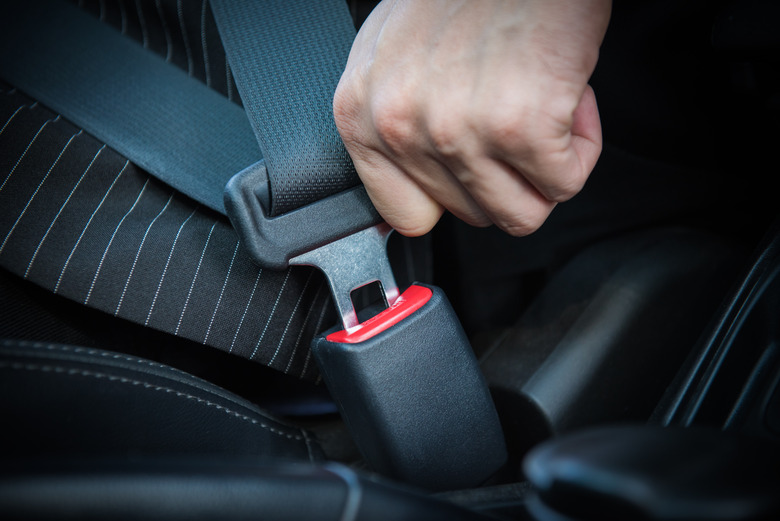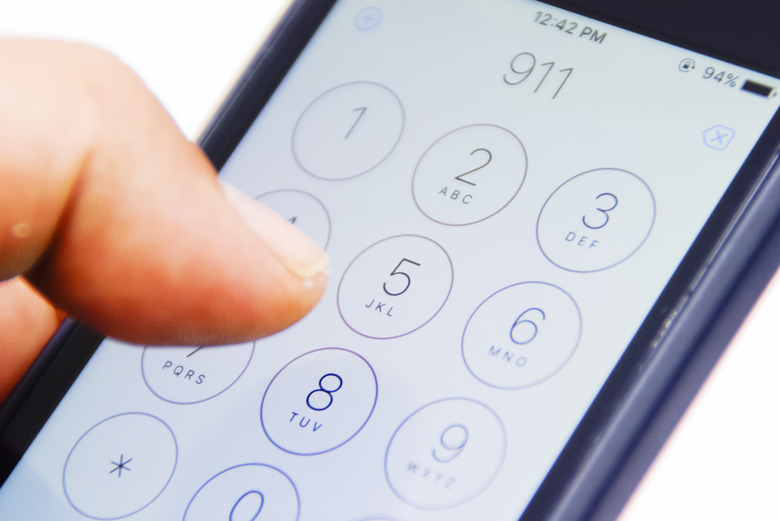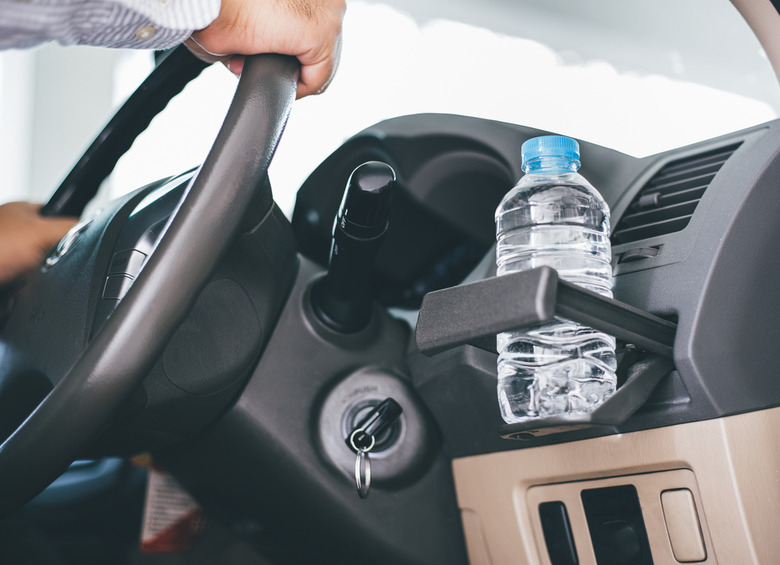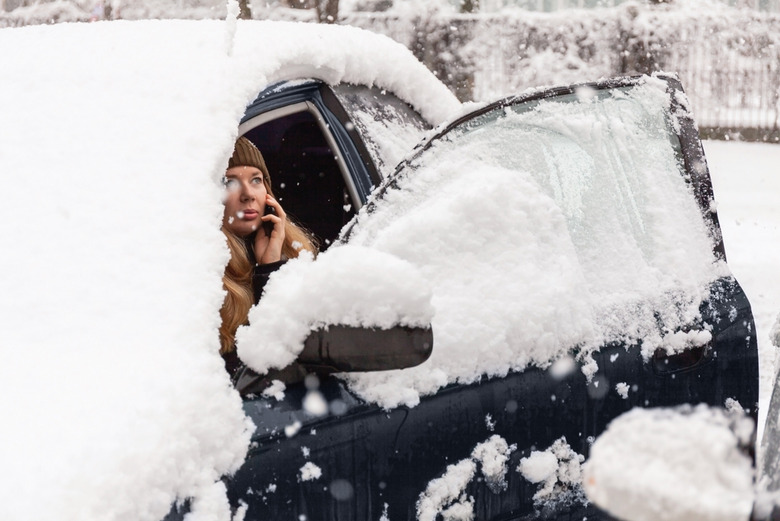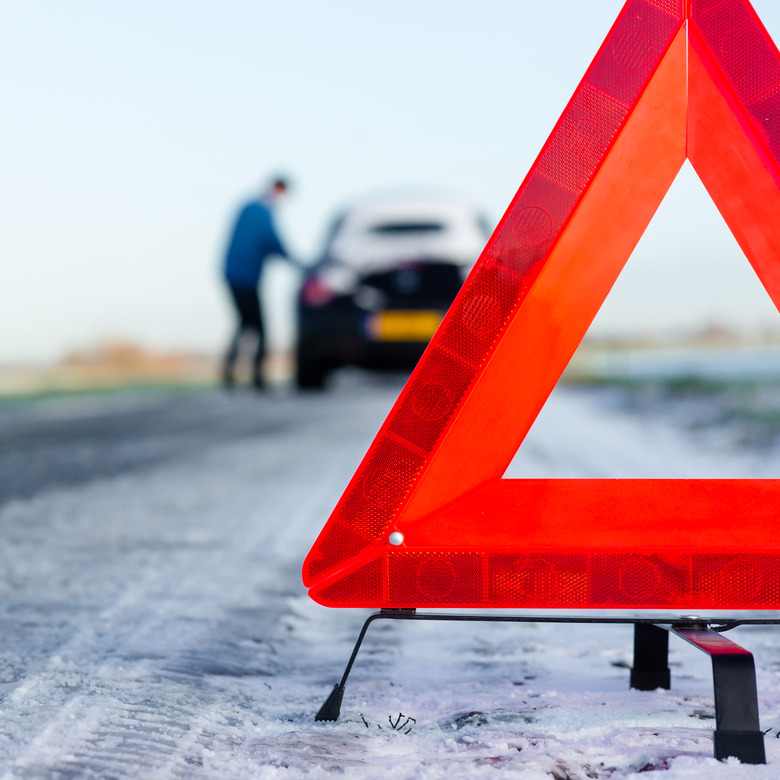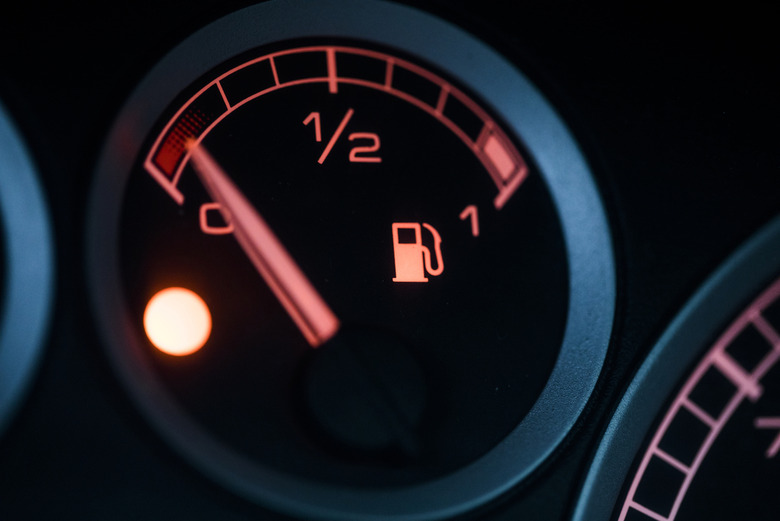How To Prepare For, And Deal With, Getting Stranded In Your Car During Winter
Getting stranded in your car is bad enough, but being stranded in severe winter weather could be dangerous. In 2018, AAA estimated that 46% of all crashes involving bad weather take place in the winter and they anticipated needing to aid 960,000 motorists during the year-end period.
If conditions are hazardous, it's best to stay off the roads, but oftentimes travel is unavoidable. In those cases, you need to be prepared for the dangers of being stranded in your car during the winter.
Know basic car maintenance
Avoid getting stranded in the first place by winterizing your vehicle. You don't have to be a car expert to know a few basic car maintenance tips. Check your car battery and make sure it's fully charged, and if it reads as low, add distilled water to help keep it running. Make sure your engine oil has not thickened in the cold weather and check tire pressure. Also make sure your gas tank is at least half full to prevent your gas lines from freezing.
Prepare a first aid kit
In the event of an accident, there might be cuts, scrapes or larger injuries you will need to tend to. Having a first aid kit in your car will help you treat minor injuries, and stocking it with some basic medicine could help you combat any smaller symptoms. Car first-aid-kit essentials include bandaids, gauze pads, hand sanitizer, antibiotic ointment, vaseline, aspirin and cotton balls.
Keep tools in your car
Having appropriate tools already in your car in case of an emergency may also help you combat some of the challenges while you're stranded in the cold weather. A windshield scraper, small shovel, waterproof matches (to melt snow), jumper cables, help signs and a flashlight with extra batteries are just a few of the tools you should keep in your car just in case you get stranded. Putting down road salt or kitty litter will also help get your tires going in slick conditions. At the start of the winter season, make sure to check perishable tools, like batteries and matches, to ensure they are still in working order.
Keep extra clothes
If you get stranded in the winter, warmth is the priority. So even if you are dressed appropriately for the cold weather, always keep extra layers of clothing in the car to make sure you will be as warm as possible in the event of an emergency. An injury like frostbite usually affects body parts such as the nose, ears, cheeks, chin, fingers and toes, meaning it's especially important to have extra mittens, hats, scarves, waterproof boots and a wind-resistant coat. According to Mayo Clinic, the risk of frostbite increases when temperatures reach 5 degrees F or lower. And when the wind's blowing, frostbite can occur on exposed skin in less than 30 minutes with a wind chill of minus 16.6 F.
Keep a portable phone charger in the car
One of the most important things to have is your phone. Most people will have that in their car already, but making sure the phone can be powered to reach out for help is crucial. If you are stranded, your car battery may not be working, so make sure to have a portable phone charger as a backup.
Keep a list of important phone numbers
If you're not good at memorizing numbers or if you need a more expansive list than the one in your head, keep a written list of emergency contacts. If your phone dies and you didn't pack that charger, but someone like a police officer, rescue worker or other helpful person stops, you will be able to get in touch with a contact.
Keep non-perishable food in your car
If you end up stranded, it may be a while before you get in contact with someone or before help arrives. It's good to have food in your car so you don't lose energy while waiting for help. Stock food that needs no cooking or refrigeration is recommended, as is water stored in clean containers or bottles. Granola bars, your favorite dry cereal, nuts and trail mix are all good options.
Stay in your car
If you get stranded in your car during the winter, bad weather conditions might be the cause. Freezing temperatures, low visibility because of snow, and slick streets due to ice make leaving your vehicle dangerous. Subjecting yourself to extended time in cold weather can severely affect your health and cause hypothermia or frostbite.
Keep your seatbelt on
If your car stops running in the middle of the road, keep your seatbelt on. A distracted driver may not notice your vehicle is stalled and there is a possibility someone could hit your car. You want to be ready for that.
Notify the authorities
Call 911 if you find yourself stuck in your car in the winter. Make sure you stay on the line until you know who you have spoken with as well as the steps that will be taken to help you get out of your situation. Being stranded in your car is an emergency and you should treat it as such.
Stay hydrated
Being hydrated is a good way to prevent cold-related illnesses such as hypothermia, frostbite and trench foot. Anything less than a body temperature of 98.6 degrees F can cause hypothermia. Being hydrated is one of the best ways to prevent your body temperature from dropping dramatically and to fight against moisture loss from dry air. A warm or room-temperature drink can help steady your internal temperature.
Keep moving
Moving your body can help warm your core. Although a car is a small space to be confined in, movement can prevent your body temperature from dropping, which in turn can prevent the illnesses that come along with being in cold weather for an extended amount of time — so keep your arms and legs moving.
Make yourself visible for help
Make yourself noticeable for any help that could pass by. Put on your hazard lights. Keep a help sign, bright-colored flag or blanket or anything that is very visible in severe winter conditions in your car in case of emergency.
Know when to use fuel
Assuming that you have gas in your tank, you should run your engine for about 10 minutes every hour to keep your car warm, according to State Farm. It is also recommended that you turn on your interior lights when your engine is on so you can be seen inside your car. If the storm that got you stuck seemed to come on suddenly, here are some ways that nature may help you predict weather in the future.
